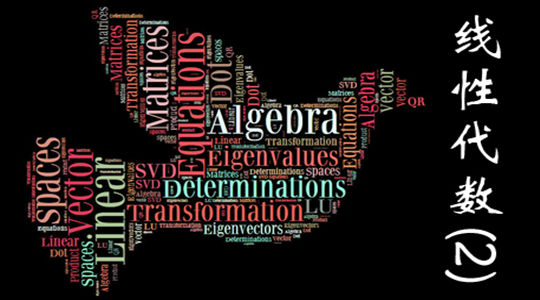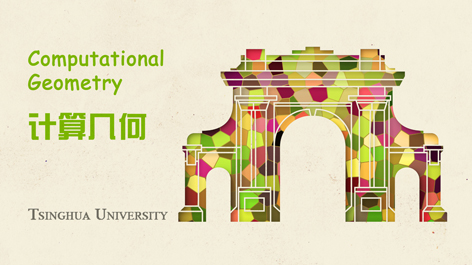
当前课程知识点:山水画技法 > 第三节 笔墨训练方法之一披麻皴 > 1.披麻皴技法演示 > Video
同学们好
hello students
我们这节课是训练方法
for this class,we’ll go over the training method
笔墨训练我们将分几讲
we’ll separate into several section
每讲是一节
each section is one lecture
我们这一节是通过
during this section
披麻皴的训练
we’ll take a look at “Pima”
来提高我们用笔用墨
for brush-ink technique improvement
和笔势关系的能力
and ability to relate to gestures
现在我来演示一下
Now let me demonstrate
披麻皴 这个在训练笔墨
Pima is the most basic training section
是最基础的课程
in brush-ink training course
因为它是用简单的直线线条
because it is using simple straight lines
借助山水的
With the form
自然景观的物像
natural landscape
是用用笔和用墨
with brush and ink work
及组织上的这么一种
and such an organization
训练的一个课题
and such organization
我现在来讲一下
Let me talk about it now.
披麻皴的概念
The concept of “Pima”
披麻皴
the Pima technique
它是一个短线直线的
is formed by
一个组织的一个过程
short line organization
它的基本的笔法和形象
Its basic brushwork and image
就是一个很短的一个线条
is a very short line
然后这个线条的力度
Then the strength of this line
包括它那个墨色的变化
including the change in its ink color
以及它那个组织关系
and its organizational relationship
这是披麻皴的典型特征
This is a typical feature of “Pima”
在中国画用笔当中
Among brushes of Chinese painting
披麻皴是训练用笔能力
“Pima” is for brush-work training
和控笔能力的
and brush control
一个最基础的一个训练方法
One of the most basic training methods
用笔 这个画线条
the lines that come from brush
为什么要追求用笔的力度
Why we pursuit the strength of brush
用笔的弹性
the brush flexibility
包括控笔的能力
includes the ability to control brush
和你从容的画线条这个能力
Ability to draw lines with your calm
以及它们那个组织关系
and their organizational relationship
那么现在我们看画面上
So now we look at the picture
这个披麻皴的短线
the short line of “Pima”
有浓淡变化 主次变化
There are shade changes Primary and secondary changes
纵横穿插
Interspersed
每一道用笔没有平行
Neither line is not parallel
长短参差不齐
varying lengths
然后那个主次关系
Then the primary and secondary relationship
那个开合关系
the relationship of folding and unfolding
下面我可以借用一个山石
let’s take a form from mountain
这么一个素材
with this resources
运用披麻皴短线的组织
by organized with “Pima” style
我们来解读一下
let’s analyze this
中国山水画的笔墨结构
the construction of Chinese painting
大概是一个什么概念
is almost like this
首先是勾
first is the hook
这个勾是我们作画的
this hook is the first step
起始的第一步
of our painting
这个勾本身就有节奏感
the hook itself with rhythm
包括长线 短线
it include long line and short lines
这个用线要有弹性
the line needs to be vividly
这个墨色的变化
the variety of ink appearance
随着我们这个笔尖
changing with brush tip
到笔根的墨色变化渐次
from the tip to the bottom of brush
不断的行笔
keep moving
这个墨也逐渐的淡了下来
and the ink could get lighter and lighter
但是皴不是画完所有的画面
but not the entire image
然后再回头再皴
step by step
因为这个墨色需要衔接
because the ink needs to be shift from each other
所以说在重墨和淡墨之间
so we say, between the light ink and dark ink
发生了变化
it’s shifting
要随时施加于皴法
and attach with “Cun”
我们这个皴法
with this type of technique
刚才我们已经在这张演示了
which we just demonstrated
它是一个短线
it’s formed by short lines
直线的一个笔墨组织
and long lines
在这样一个笔墨组织当中
with such organization
我们要追求它的疏密关系
we mainly forced on it intensity relationship
主次关系 浓淡关系
primary and secondary relationship
和干湿的关系
dark and light, dry and wet
那么我们到了具体的这个
then when we meet the actually
借用山水物像的时候
landscape form
这个皴法它的最终目的
the ultimate purpose of “Cun”
有造型的这种功能
include forming and shaping
但它最后的目的
and the final purpose is
它是要完成笔墨的
to accomplish the rhythm
一个节律的
of ink and brush
这么一种审美追求
this aesthetic pursue
那么这种节律感来自哪呢
then where exactly does such rhythm come from
来自我们审美主体的
it could come from our aesthetic subject
对生命的这个
the understanding of the rhythm
节奏的一种理解
of life
所以说
that’s why we say
我们这种节律感的把握
the control of rhythm
是我们线条组织规律的
is the inner needing of
内在的一种要求
the line organization
那么我现在施加它的皴法
now the “Cun” we operating
它这个皴法要和主线的勾
needs to have connection with
要形成一个审美联系
other technique like the hook in aesthetic way
怎么样一个审美联系呢
what exactly aesthetic connection?
它肯定要形成一个主次关系
It must has a primary and secondary relationship
疏密关系
and intensity difference,
参差错落 长短关系
length difference
还有粗细 浓淡
and relationship of size difference
干湿的一些关系
and relationship between dryness and wetness
我开始施加皴法
Now let me demonstrate the “Cun” technique
这浓淡逐渐有变化
the shifting in dark and light
这个线条没有一笔是平行的
neither of these line is paradise
长短粗细也有变化
also with length difference
浓淡具有鲜活的
the color of line is vivid
律动的一种体现
it contains a tension of movement
然后再往前发展
then we keep moving
这个墨色变化是非常重要
the shift of ink is really important
如果单纯的只有用笔的组织
the organization only with brush organization
墨色没有变化的话
but without ink changing
它就像刻印
it gonna be like printing works
那么刻印只有用笔结构
so like printing works only have brush stroke
但是它没有鲜活的
but without vivid ink performance
这个墨色的体现
the appearance of ink color
这个墨色体现
the appearance of ink color
还是一种天然造化
is a expression base on natural
而且浓淡干湿的变化
and the changing between dry and wet
非常过渡自然
should be naturally shifted
我就蘸了一笔墨
from the beginning when add ink on brush
到现在始终在用
I’m still using it
现在用笔
now the brush operating
出线它就是一个淡墨的干笔
it turns into dry stroke
我们有很多干的线条
we have many dry lines
干笔的线条
come out from dry brush stroke
这个时候就出现了
at this moment
有些干笔 淡墨
it shows some dry stroke with light ink
我们要充分的使用
which we need to operate well
一笔作画
with one stroke
笔墨变化无穷
it contains numerous change
有浓 有淡 有干 有湿
with intense, light, dry and wet
有实笔 有虚笔
it got solid hollow stroke
然后我们的线条
And the lines
有疏密关系
with intensity relationship
有长短错落
different position
有纵横穿插
and cross-over construction
那么我们那个笔墨结构
so the brush-ink construction we talked about
完全是在这样一个行文当中
it got thoroughly expressed
得到充分的表达
within such style
表达什么呢
but what we need to express?
表达我们对审美的理解
To express our understanding of aesthetic
表达我们内心
to express our deep inside
对一个美的理解的一个境界
and another level understanding of beauty
这是用笔的
Here is the inner pursue
笔墨结构的一个内在追求
of brush-ink construction
到了这个时候
at this point
笔已经没有水分了
the moisture in brush has run out
我们再蘸点水
keep adding water
蘸水重新调墨
adjust ink with water
要调到笔尖到笔根
from tip all the way to the bottom
墨的渐次变化
the value of ink shifting
然后在这样一个
and after this first layer
第一遍的勾皴的基础之上
after the first layer of “Cun”
我们为了调整笔墨
we adjust the brush
我们还可以施加一些点状
and we can add a little more dots
因为我们现在
Because at this point
那个笔尖比较重
the tip is little heavy
所以说我们可以点点重点
so let’s generate some key point
然后我们那个
then
在调整墨色的过程当中
during the process of ink adjustment
我们觉得整个墨色衔接
we need take a look at the ink connection
哪地方需要再加重
where need to be more intense
或者是再加混沌
or more blurry
还可以继续调整
or need more adjustment
通过披麻皴来实现
through “Pima” technique
我们内心一种表达
this is our inner expression
我们内心要控制
we need control
这些线条的组织
the organization of lines
把我们内心的审美结构
shift our subjective aesthetic
转换成画面的
into image
这就是画面的笔墨结构
this is so-called brush-ink construction
有的地方要收得很紧
some part needs to be intense
墨色衔接要好
ink color needs to be attached with each other
这就是整个披麻皴的
this is the process of
书写的过程
“Pima” technique
那么把握这样一个
so get to know with
由披麻皴组成的
this construction that formed by “Pima”
借助山石为素材的笔墨形式
which used the landscape as subject
这里首先要求
at first
第一要有用笔的功力
it requires brush performance
这个用笔的功力
the performance of brush using
使每一个线条具有弹性
each line has elasticity
有力度 有神采
with strength and emotion
墨色变化要非常的微妙
the changing of ink appearance needs to be subtle
干湿 浓淡 焦 五色俱全
with dry, wet, intense, burn all five changing
然后第三点就是
and the third is
笔墨这些线条的组织关系
the organization of lines
这三点是练习
these are three key point for practicing
用披麻皴来创造一个
by using “Pima” to create
艺术形象的
a art form
三个主要的进行训练的要点
three key point
那么三个要点呢
then why it needs three point?
以笔墨组织为难
for example, the ink-brush organization
因为这是一个需要有审美的
because it requires an aesthetic
内在的一种理解
inner understanding
随着我们对韵律 节奏
with our understanding base on
运动 和谐 秩序
rhythm, order and harmony
这些概念的理解
base on understanding of such concept
对生命本身的
and the life itself
律动关系的理解
understand rhythm relationship
我们这个笔墨的组织
then the organize performance of ink and brush
会越来越好
will get better and better
那么现在演示我们就到这
Let’s finish here
-1.中国山水画的理想追求与表达
--Video
-课程作业--作业
-1.笔墨概念与材料介绍
--Video
-2.笔墨基础技法
--Video
-3.笔墨表达的一般程序
--Video
-第二节 笔墨概念和材料--课程作业
-1.披麻皴技法演示
--Video
-2.披麻皴作业点评
--Video
-3.画面调整
--Video
-第三节 笔墨训练方法之一披麻皴--课程作业
-1.牛毛皴技法演示
--Video
-2.牛毛皴作业点评
--Video
-3.画面调整
--Video
-课程作业--作业
-1.斧劈皴技法演示
--Video
-2.斧劈皴作业点评
--Video
-3.画面调整
--Video
-课程作业--作业
-1.树干及点叶法演示
--Video
-2.树干及点叶作业点评
--Video
-3.画面调整
--Video
-课程作业--作业
-1.出枝法演示
--Video
-2.出枝法作业点评
--Video
-3.画面调整
--Video
-课程作业--作业
-期末临摹作业
-期末主观论述题




